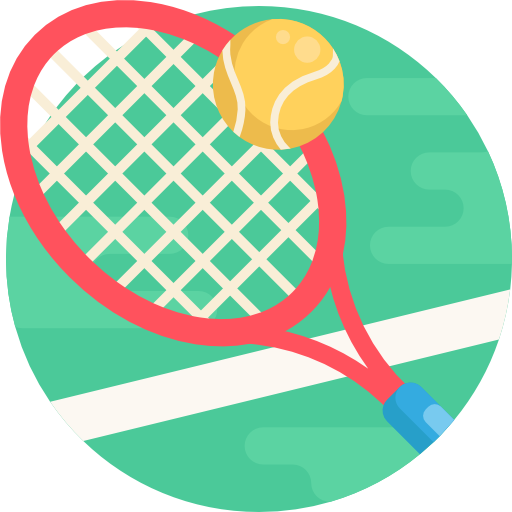Nutrition Tips for Tennis Players
Tennis is a physically demanding sport that requires players to have not only skill but also stamina, strength, and agility. Achieving peak performance on the court hinges significantly on proper nutrition. This article outlines crucial nutrition tips tailored for tennis players at all levels, emphasizing the importance of a balanced diet, hydration, and strategic meal timing.
The Importance of a Balanced Diet
A balanced diet is essential for tennis players as it provides the necessary nutrients to fuel their training and competition. A well-rounded diet should include:
- Carbohydrates: Carbohydrates serve as the body’s primary energy source. Tennis players should focus on complex carbohydrates such as whole grains, legumes, fruits, and vegetables. These foods provide sustained energy throughout matches and training sessions.
- Proteins: Protein is vital for muscle repair and recovery. Tennis players should consume lean sources of protein such as chicken, fish, dairy products, and plant-based options like quinoa and beans. Aim for a protein-rich meal after training to aid recovery.
- Fats: Healthy fats are crucial for hormone production and nutrient absorption. Sources like avocados, nuts, seeds, and olive oil are beneficial for players seeking sustained energy without the quick spike and crash associated with sugar-heavy snacks.
Meal Timing and Pre-Match Nutrition
When it comes to performance, meal timing is vital. Here are a few tips:
- Prioritize a balanced meal two to three hours before a match or intensive training. This meal should consist of carbohydrates, protein, and some healthy fats.
- For those who might have difficulty digesting solid foods closer to match time, try consuming a light snack 30-60 minutes prior. Options like a banana, yogurt, or a small smoothie can be easily digested while providing energy.
- Avoid heavy or fatty foods right before a match, as these can lead to sluggishness.
Hydration: The Key to Performance
Hydration is critical for maintaining optimal performance levels. Tennis players can lose significant amounts of water through sweat, especially in hot conditions. Here are hydration guidelines:
- Drink water consistently throughout the day, aiming for at least 2-3 liters depending on exercise intensity and sweat rate.
- During matches, take regular sips of water or sports drinks to replenish electrolytes lost due to sweat. A sports drink can be beneficial for hydration during extended matches or training sessions lasting longer than an hour.
Post-Match Recovery
After a match or training session, it’s essential for players to focus on recovery. This includes replenishing energy stores, repairing muscle tissue, and rehydrating:
- Consume a carbohydrate-rich meal within 30 minutes post-exercise to help replenish glycogen stores. Pair this with a source of protein to facilitate muscle recovery.
- Incorporate recovery drinks or smoothies that include hydration, carbohydrates, and proteins for a convenient post-match option.
Sample Daily Meal Plan for Tennis Players
| Meal | Example Foods |
|---|---|
| Breakfast | Oatmeal topped with berries and a tablespoon of almond butter; a side of scrambled eggs. |
| Mid-Morning Snack | Sliced apple with peanut butter or a low-fat yogurt. |
| Lunch | Grilled chicken salad with a variety of colorful vegetables and a whole grain roll. |
| Afternoon Snack | Whole grain toast with avocado and a sprinkle of salt; or a mix of nuts. |
| Dinner | Baked salmon with quinoa and steamed broccoli, drizzled with olive oil. |
| Evening Snack | Cottage cheese with pineapple or a protein shake. |
Conclusion
Proper nutrition is foundational for tennis players aiming to enhance their performance and recovery. By focusing on a well-balanced diet rich in carbohydrates, proteins, and healthy fats, maintaining adequate hydration, and strategically timing meals, players can maximize their potential on the court. Implementing these nutrition tips will not only improve athletic performance but also promote overall health and well-being.
